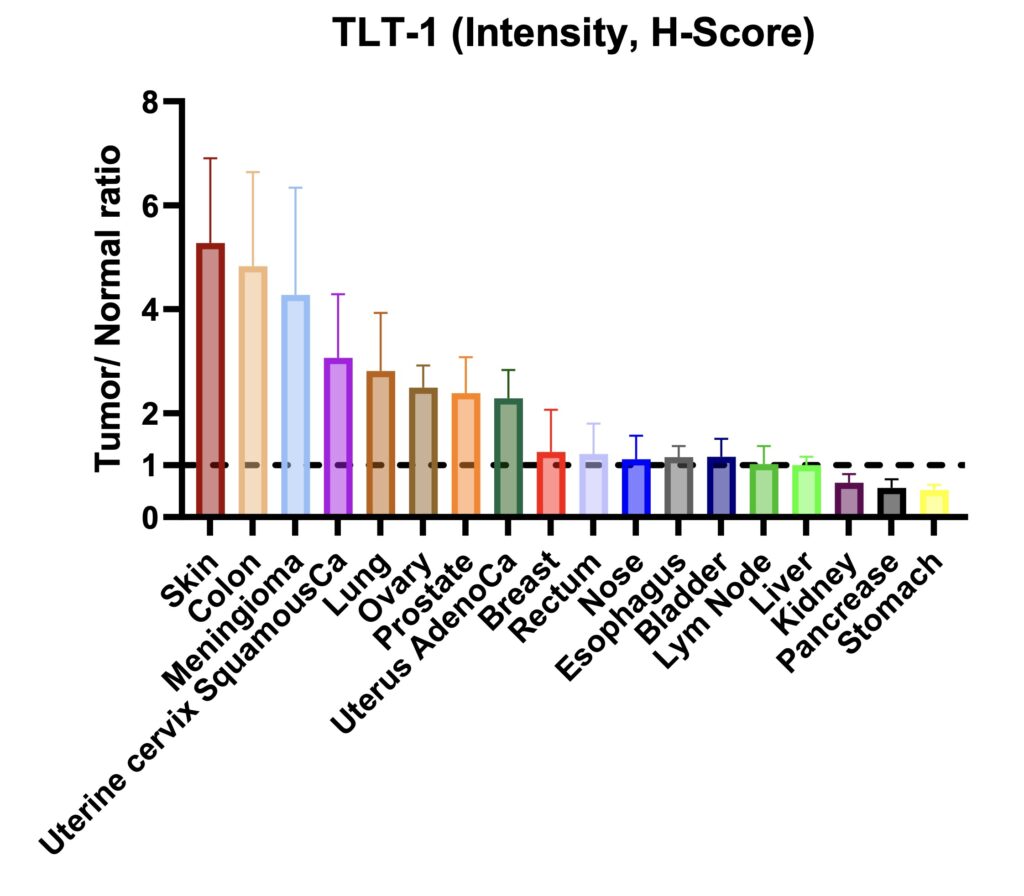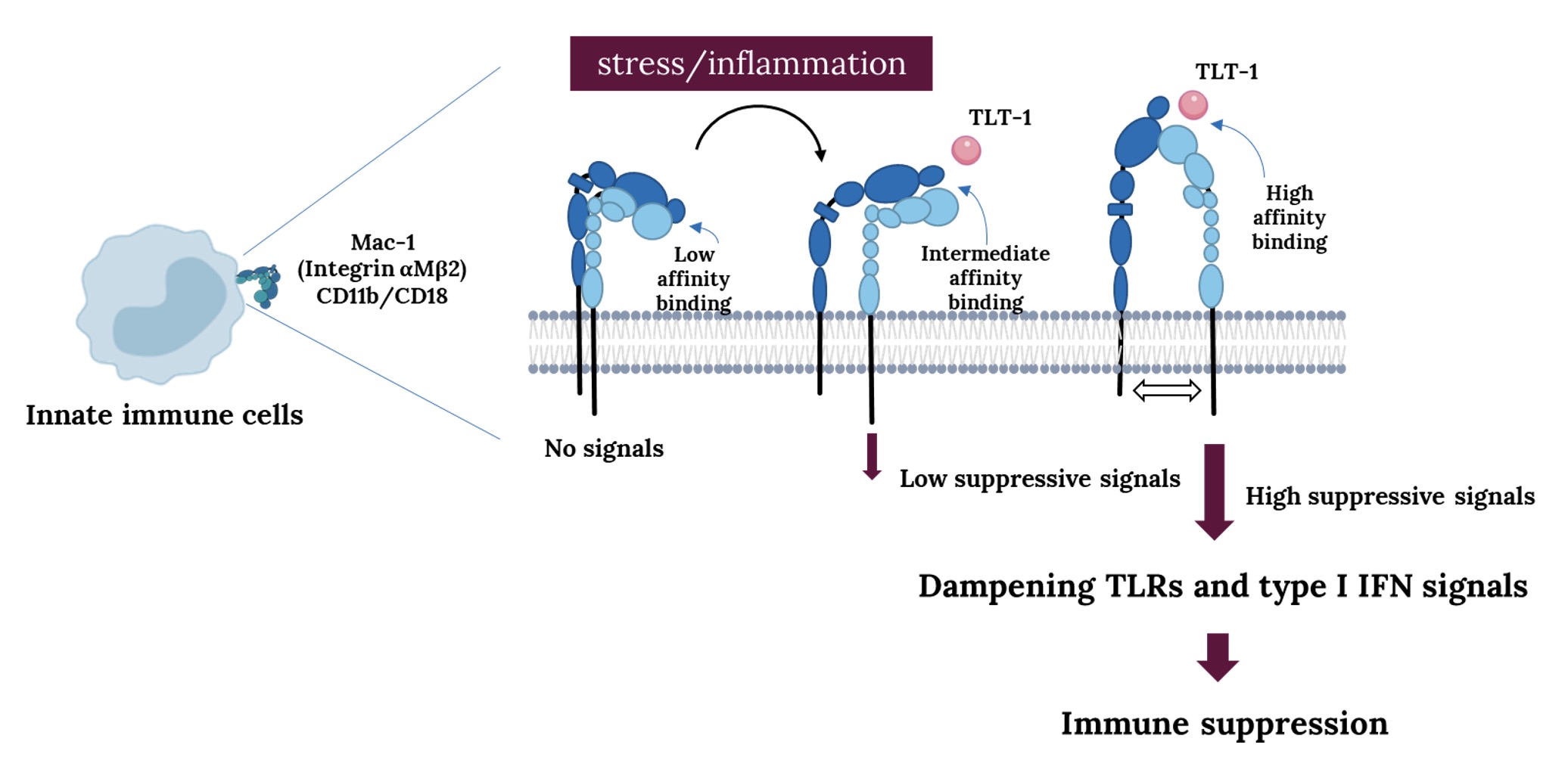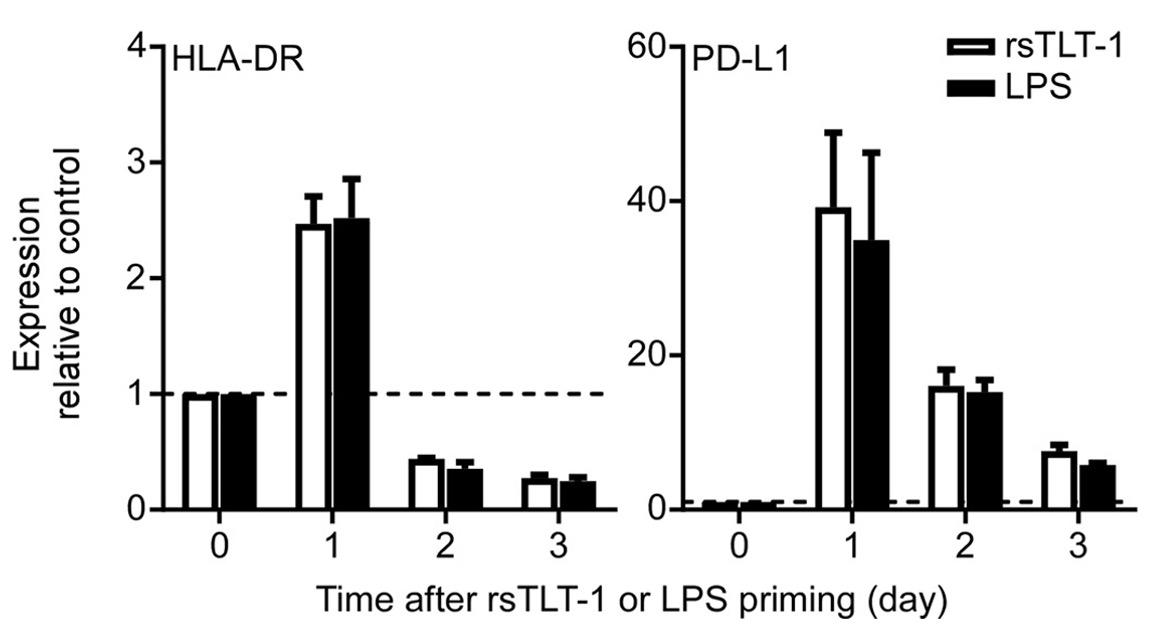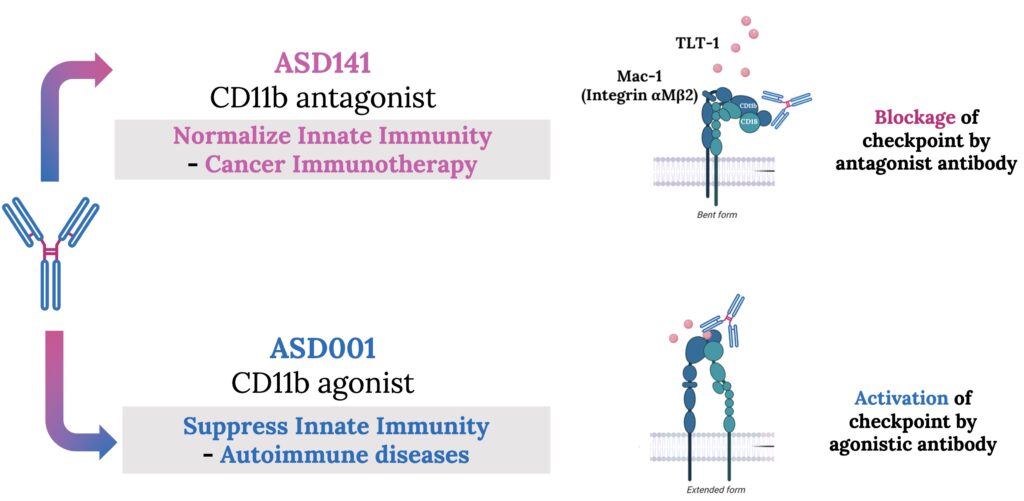
Unlocking Innate Immunity for Transformative Therapies
At Ascendo Biotechnology, our scientific approach is grounded in a deep investigation of the body’s natural repair and immune mechanisms—starting with platelets, the first responders to tissue injury. Traditionally known for their role in blood clotting and wound healing, platelets are increasingly recognized for their ability to interact with the immune system and influence inflammation, tissue repair, and even tumor progression.
TLT-1 and CD11b:
A Novel Innate Immune Checkpoint Axis
A key molecule we are studying in this context is TLT-1 (Triggering Receptor Expressed on Myeloid Cells-Like Transcript 1), a protein secreted almost exclusively by activated platelets. Our research suggests that TLT-1 may act as a novel innate immune checkpoint, playing a critical role in immune suppression within the tumor microenvironment (TME). Notably, we have observed that TLT-1 appears to be enriched in tumors that are resistant to current immune checkpoint inhibitors, such as anti-PD1 therapies. Preliminary data from cancer databases further indicate a potential correlation between elevated TLT-1 expression and poorer overall survival in certain cancer patients.

We have also found that, upon platelet activation, TLT-1 is released into circulation and binds to innate immune cells. Through mass spectrometry analysis, we identified CD11b, a component of Mac-1 (integrin αMβ2) and a receptor expressed exclusively on innate immune cells, as a likely binding partner for TLT-1. This interaction may contribute to the polarization of immune cells—particularly macrophages—toward M2-like phenotypes, which are associated with tissue repair and immune suppression.


Ascendo published data: J Immunol. 2023;210(9):1351-1362.
Translating Science into Therapies: ASD141 and ASD001
Building on these insights, Ascendo Biotechnology is developing a pipeline of novel immunomodulatory therapeutics that aim to disrupt this axis.

- Our lead candidate, ASD141, is a first-in-class monoclonal antibody that blocks the TLT-1/CD11b interaction. Preclinical studies in humanized mouse models have shown that ASD141 may reduce immune suppression and promote anti-tumor activity, both as a monotherapy and in combination with established checkpoint inhibitors such as anti-PD1 and anti-CTLA-4. This asset is currently undergoing Phase I dose-escalation clinical trials in patients with advanced solid tumors.
- In parallel, we are advancing ASD001, a monoclonal antibody designed to modulate CD11b-mediated immune pathways in the context of autoimmune diseases, including inflammatory bowel disease (IBD) and systemic lupus erythematosus (SLE). ASD001 is currently in animal proof-of-concept (PoC) studies.
Through this work, Ascendo aims to address critical unmet needs in oncology and immunology by targeting innate immune pathways that are often overlooked in current therapeutic strategies. By modulating the balance between immune activation and suppression, we hope to create transformative treatments that deliver long-term benefit to patients.

Partner of choice for novel immunotherapeutics
Ascendo Biotechnology is a strategic partner of choice for novel immunotherapies which exploit the interplay between the innate and adaptive immune response. We are currently seeking partners to accelerate the development and commercialization of our lead oncology drug, ASD141.
If you’re interested in discussing our programmes, please get in touch
